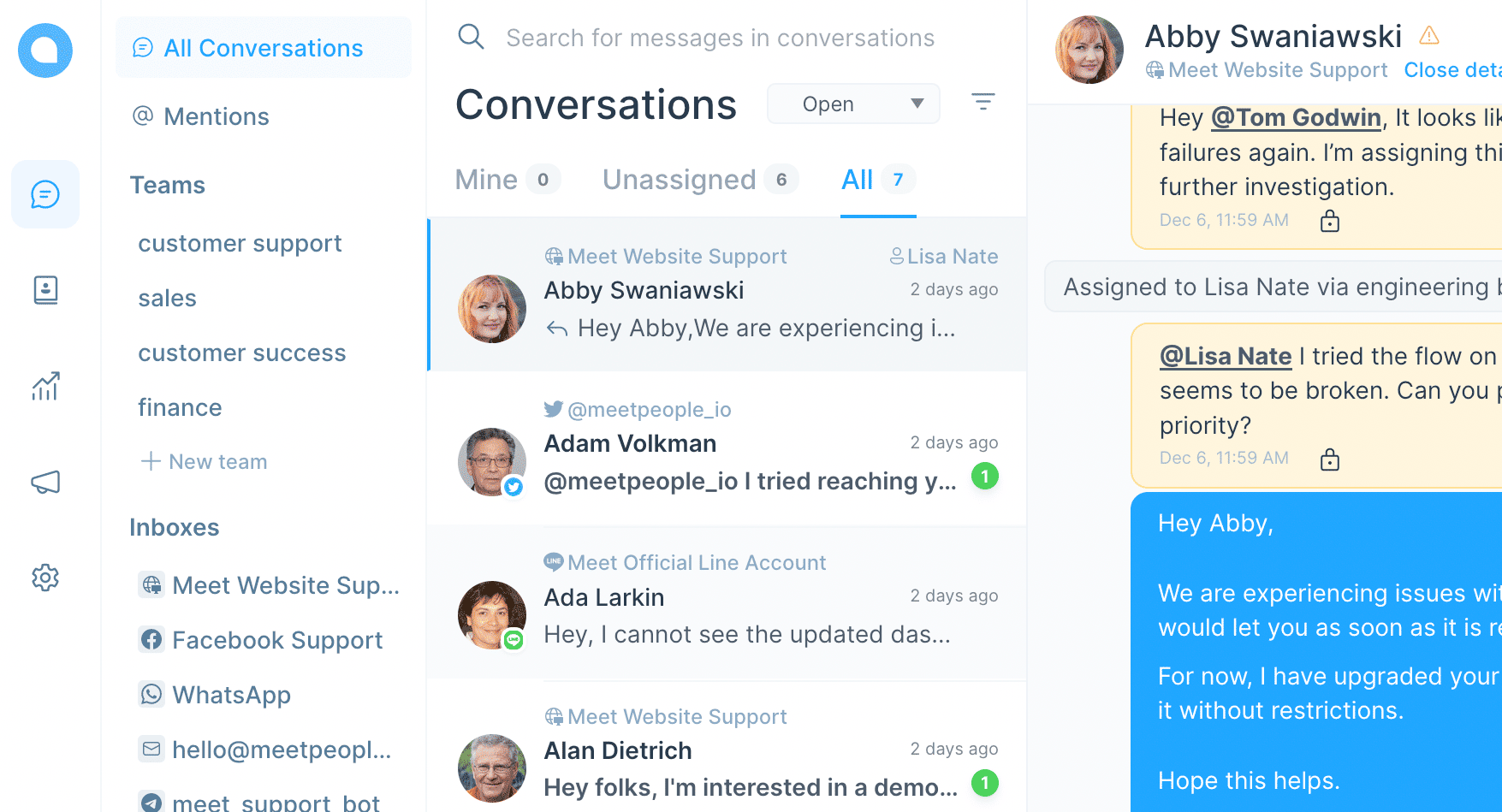Chatwoot is an Open Source Self-hosted Customers Messaging System
Open-source customer engagement suite, an alternative to Intercom, Zendesk, Salesforce Service Cloud etc
Table of Content
Chatwoot is an open-source, self-hosted customer engagement suite. Chatwoot lets you view and manage your customer data, communicate with them irrespective of which medium they use, and re-engage them based on their profile.
It is a free alternative for services like Intercom, Zendesk, Salesforce, and Service Cloud.
As a self-hosted solution, it means you can download the project, and install it on your server.
Chatwoot offers several deployment options, but our favorite one is DigitalOcean as you can deploy it with one-click using Kubernetes. Using this link, you can get $100 credit from DigitalOcean for 60 days, and test, and run Chatwoot for business.

Features
- Website: Talk to your customers using our live chat widget and make use of our SDK to identify a user and provide contextual support.
- Facebook: Connect your Facebook pages and start replying to the direct messages to your page.
- Instagram: Connect your Instagram profile and start replying to the direct messages.
- Twitter: Connect your Twitter profiles and reply to direct messages or the tweets where you are mentioned.
- Telegram: Connect your Telegram bot and reply to your customers right from a single dashboard.
- WhatsApp: Connect your WhatsApp business account and manage the conversation in Chatwoot.
- Line: Connect your Line account and manage the conversations in Chatwoot.
- SMS: Connect your Twilio SMS account and reply to the SMS queries in Chatwoot.
- API Channel: Build custom communication channels using our API channel.
- Email: Forward all your email queries to Chatwoot and view it in our integrated dashboard.
- Built-in CRM integration
- Custom Attributes: Define custom attribute attributes to store information about a contact or a conversation and extend the product to match your workflow.
- Shared multi-brand inboxes: Manage multiple brands or pages using a shared inbox.
- Private notes: Use @mentions and private notes to communicate internally about a conversation.
- Canned responses (Saved replies): Improve the response rate by adding saved replies for frequently asked questions.
- Conversation Labels: Use conversation labels to create custom workflows.
- Auto assignment: Chatwoot intelligently assigns a ticket to the agents who have access to the inbox depending on their availability and load.
- Conversation continuity: If the user has provided an email address through the chat widget, Chatwoot will email the customer under the agent name so that the user can continue the conversation over the email.
- Multilingual support: Chatwoot supports 10+ languages.
- Powerful API & Webhooks: Extend the capability of the software using Chatwoot’s webhooks and APIs.
- Integrations: Chatwoot natively integrates with Slack right now. Manage your conversations in Slack without logging into the dashboard.
- Developer-friendly API and documentation
- Deploy to AWS, DigitalOcean, Heroku, Microsoft Azure, Ubuntu and more.
- Deploy using Docker
- Developer-friendly API
License
Copyright (c) 2017-2021 Chatwoot Inc.
Portions of this software are licensed as follows:
- All content that resides under the "enterprise/" directory of this repository, if that directory exists, is licensed under the license defined in "enterprise/LICENSE".
- All third party components incorporated into the Chatwoot Software are licensed under the original license provided by the owner of the applicable component.
- Content outside of the above mentioned directories or restrictions above is available under the "MIT Expat" license as defined below.
Permission is hereby granted, free of charge, to any person obtaining a copy
of this software and associated documentation files (the "Software"), to deal
in the Software without restriction, including without limitation the rights
to use, copy, modify, merge, publish, distribute, sublicense, and/or sell
copies of the Software, and to permit persons to whom the Software is
furnished to do so, subject to the following conditions:
The above copyright notice and this permission notice shall be included in
all copies or substantial portions of the Software.
THE SOFTWARE IS PROVIDED "AS IS", WITHOUT WARRANTY OF ANY KIND, EXPRESS OR
IMPLIED, INCLUDING BUT NOT LIMITED TO THE WARRANTIES OF MERCHANTABILITY,
FITNESS FOR A PARTICULAR PURPOSE AND NONINFRINGEMENT. IN NO EVENT SHALL THE
AUTHORS OR COPYRIGHT HOLDERS BE LIABLE FOR ANY CLAIM, DAMAGES OR OTHER
LIABILITY, WHETHER IN AN ACTION OF CONTRACT, TORT OR OTHERWISE, ARISING FROM,
OUT OF OR IN CONNECTION WITH THE SOFTWARE OR THE USE OR OTHER DEALINGS IN
THE SOFTWARE.











